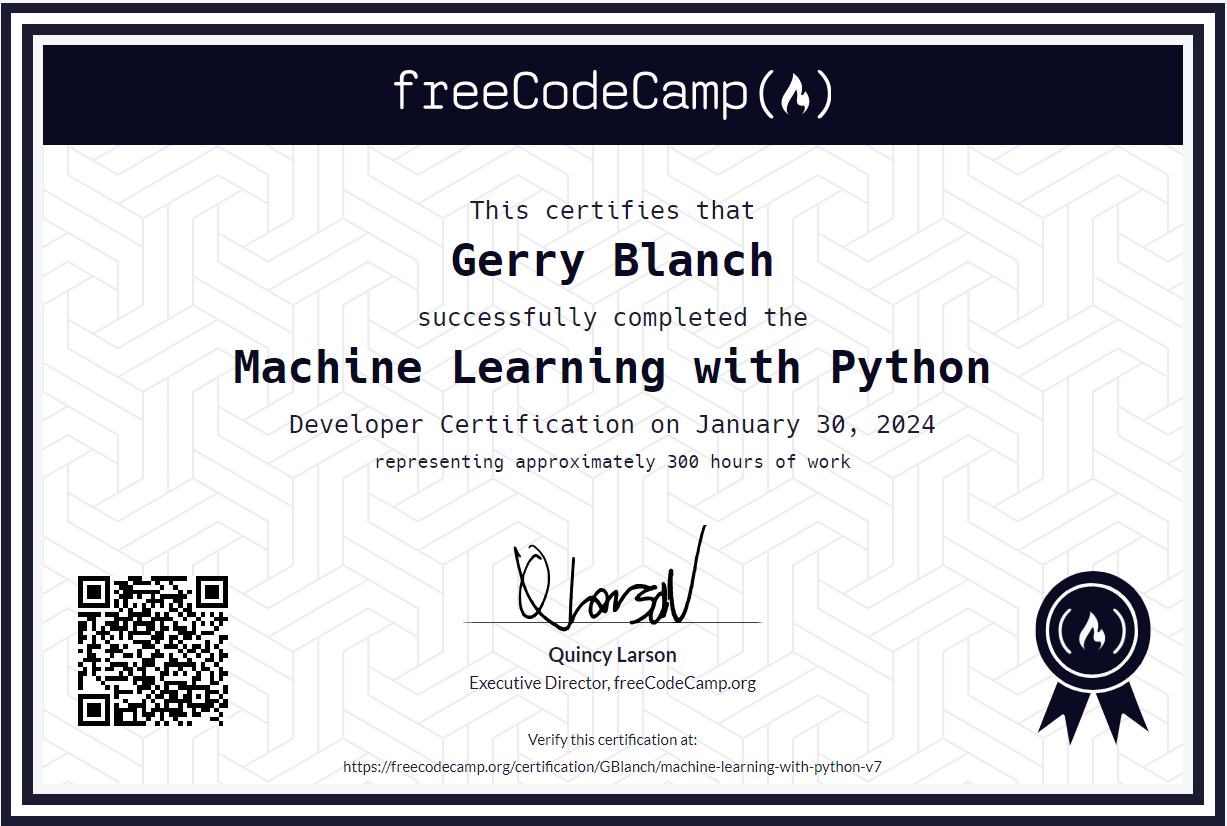Note
Sourced from my solution to the challenge Book_recommendation_engine_using_KNN:
As similarly occurred to me when solving the challenges for the course fCC DA with Python, the cornerstone to tackle and solve these problems was to commence by understanding the test_module and its classes and methods. In the case of this ML course, since an IDE is being used to develop and test all the code, it's about understanding the test_function.
Another noteworthy habit that helped me organize and map what I was coding was to utilize constants and variables as much as conveniently possible. That also helped me tweak my code and re-plan my steps when facing dead ends in my initial mapping or when encountering inescapable Exceptions.
Nonetheless, and prior to taking any small reverse engineering approach, I tried to stay up-close to some key principles which are a sine qua non requisites in each and every project, whatever their size and scope can be. These are understanding the problem statement - to the extent as though you created it - , exploring and becoming oneself familiar with the provided datasets.
Thanks for reading this and happy coding!
books = get_recommends("Where the Heart Is (Oprah's Book Club (Paperback))")
print(books)
def test_book_recommendation():
test_pass = True
recommends = get_recommends("Where the Heart Is (Oprah's Book Club (Paperback))")
if recommends[0] != "Where the Heart Is (Oprah's Book Club (Paperback))":
test_pass = False
recommended_books = ["I'll Be Seeing You", 'The Weight of Water', 'The Surgeon', 'I Know This Much Is True']
recommended_books_dist = [0.8, 0.77, 0.77, 0.77]
for i in range(2):
if recommends[1][i][0] not in recommended_books:
test_pass = False
if abs(recommends[1][i][1] - recommended_books_dist[i]) >= 0.05:
test_pass = False
if test_pass:
print("You passed the challenge! 🎉🎉🎉🎉🎉")
else:
print("You haven't passed yet. Keep trying!")
test_book_recommendation()
["Where the Heart Is (Oprah's Book Club (Paperback))", [["I'll Be Seeing You", 0.8016], ['The Weight of Water', 0.7709], ['The Surgeon', 0.7699], ['I Know This Much Is True', 0.7677]]]
You passed the challenge! 🎉🎉🎉🎉🎉The variable recommends which is being tested in the function test_book_recommendation() , must be a nested list and it has to satisfy, at least but not limited to, the following:
- the first element must be the title (str) of the book being tested. (L7) ('Where the Heart Is')
- the second element must be another nested list - of at least 4 dimensions - , and inside each sublist:
- the first parameter must be the title of a book (str) and each parameter must be equal to the elements (str) of the list
recommended_books. - the second parameter must be the distance(int) of the k-nearest neighbors of each book. The values of the elements (int) of the list
recommended_books_distwill be subtracted to the ones of each parameter fromrecommends, and for each index (these have no limit) the absolute value of this difference (int) must be equal or smaller than .05 .(L14)
- the first parameter must be the title of a book (str) and each parameter must be equal to the elements (str) of the list
